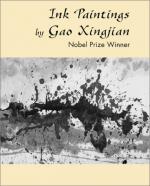|
This section contains 1,544 words (approx. 6 pages at 300 words per page) |

|
SOURCE: Mehegan, David. “The Man Who Can't Be ‘We.’” Boston Globe (7 March 2001): A17.
In the following essay, Mehegan asserts that Gao acts as a spokesperson for individual freedoms through his works of drama and fiction.
Standing alone at the podium, a slender Chinese man in a black suit spoke softly. All around and high above, the concave amphitheater at Harvard University was packed to overflowing with people, primarily Chinese, of all ages, hanging on his measured words. An interpreter stood at a microphone nearby.
The room was hot and airless, but Gao Xingjian, the 2000 Nobel laureate for literature, was a kind of cool island. His short talk was on literature and freedom. The writer must break free, he said, of all constraints and external pressures: political, social, economic. “For a writer trapped by ideology,” he said, “it is hard to achieve freedom. I take a stand against ‘isms...
|
This section contains 1,544 words (approx. 6 pages at 300 words per page) |

|


